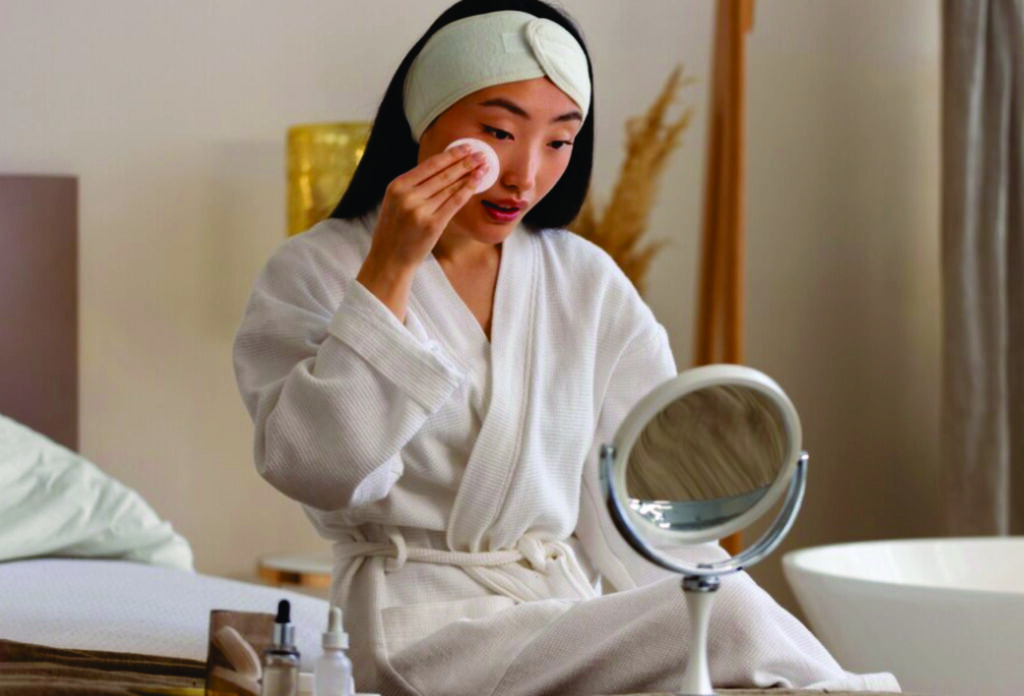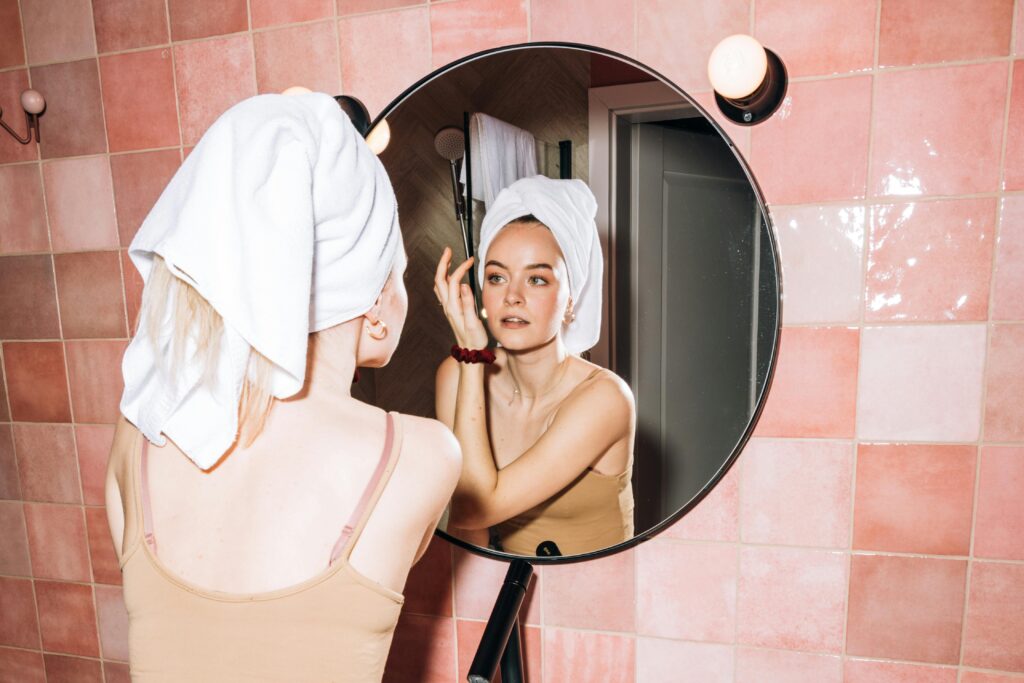Skincare enthusiasts and dermatologists alike are always on the lookout for the best ingredients to maintain youthful, radiant skin. Among the most talked-about anti-aging ingredients are retinol, bakuchiol, and ginseng. Each of these powerhouses offers unique benefits, but which one is best for your skin? Let’s dive into the bakuchiol vs. retinol vs. ginseng debate, comparing their effects, differences, and how to use them together for maximum results.

What Is Retinol?
Retinol, a derivative of vitamin A, is one of the most researched and widely used anti-aging ingredients. It promotes collagen production, increases cell turnover, and improves skin texture. Dermatologists often recommend it for reducing fine lines, wrinkles, and uneven skin tone. However, retinol can be harsh on sensitive skin, leading to irritation, flaking, or dryness if not introduced properly.
Benefits of Retinol:
- Stimulates collagen, keeping skin firm and youthful (American Academy of Dermatology, 2021).
- Reduces fine lines and wrinkles, enhancing skin texture.
- Brightens uneven skin tone, minimizing dark spots and pigmentation.
- Clears pores and prevents breakouts, reducing acne severity.
- Repairs sun damage, restoring the skin’s natural glow.
- Strengthens the skin barrier, preventing excessive moisture loss.
Customer Review: “I’ve been using a 0.5% retinol serum for six months, and my fine lines have visibly reduced. However, I had to start slowly because my skin peeled at first.” – Lisa, 34 (Skincare Forum).
What Is Bakuchiol? 
Bakuchiol is a plant-derived ingredient extracted from Psoralea corylifolia. It has gained popularity as a gentler alternative to retinol, offering anti-aging benefits without the risk of irritation. Unlike retinol, bakuchiol does not cause excessive dryness, making it ideal for sensitive or reactive skin types.
Benefits of Bakuchiol:
- Promotes collagen production, reducing fine lines and wrinkles (Journal of Drugs in Dermatology, 2019).
- Enhances skin elasticity, making skin appear firmer and plumper.
- Provides antioxidant protection, defending against environmental stressors.
- Less likely to cause redness or peeling, making it safe for all skin types.
- Hydrates and supports moisture retention, preventing skin dehydration.
Customer Review: “I switched from retinol to bakuchiol because my skin couldn’t handle the dryness. After two months, I noticed my skin looked smoother without irritation.” – Emma, 29 (Beauty Blog Comments).
What Is Ginseng and How Does It Benefit the Skin?
Ginseng has been a staple in Asian skincare for centuries, particularly in Korean beauty routines. This antioxidant-rich herb is known for its ability to boost circulation, improve skin elasticity, and provide a natural glow. Ginseng is often included in skincare for its ability to revitalize dull, tired skin and combat the effects of aging.

Benefits of Ginseng:
- Increases circulation, delivering oxygen and nutrients to skin cells for a healthy glow.
- Reduces inflammation, helping to calm redness and irritation (International Journal of Molecular Sciences, 2020).
- Protects against free radical damage, preventing premature aging.
- Enhances skin elasticity, keeping the skin looking firm and youthful.
- Brightens the complexion, reducing dullness and uneven skin tone.
Customer Review: “I use a ginseng serum every morning, and it makes my skin feel energized and hydrated. It’s become my go-to for a natural glow.” – Mia, 41 (Skincare Forum).
Comparing Retinol, Bakuchiol, and Ginseng: Key Differences
1. Irritation and Sensitivity
- Retinol can cause peeling, redness, and dryness, especially when first introduced.
- Bakuchiol is gentler and non-irritating, making it suitable for sensitive skin.
- Ginseng helps soothe inflammation, making it ideal for redness-prone or stressed skin.
2. Sun Sensitivity
- Retinol increases sun sensitivity, requiring daily sunscreen use.
- Bakuchiol does not cause photosensitivity, making it safe for both morning and night application.
- Ginseng provides antioxidant protection but should still be paired with sunscreen for optimal results.
3. Speed of Visible Results
- Retinol delivers faster results, often improving wrinkles and skin texture within a few weeks.
- Bakuchiol works more gradually, requiring consistent use for long-term benefits.
- Ginseng provides an instant boost of radiance by improving circulation and hydration.
4. Compatibility with Other Ingredients
- Retinol does not mix well with exfoliating acids or strong actives.
- Bakuchiol pairs well with vitamin C, niacinamide, and hyaluronic acid.
- Ginseng complements both retinol and bakuchiol, enhancing their effects while providing additional antioxidant support.
5. Pregnancy and Breastfeeding Safety
- Retinol is not safe for pregnant or breastfeeding women.
- Bakuchiol and ginseng are safer alternatives for those looking to maintain youthful skin during pregnancy.

How to Incorporate Retinol, Bakuchiol, and Ginseng Into Your Skincare Routine
Using Retinol Correctly
To minimize irritation, follow these steps:
- Start with low concentrations (0.3%–0.5%) and use 2–3 times per week.
- Always apply moisturizer after retinol to maintain skin hydration.
- Use sunscreen daily, as retinol increases UV sensitivity.
- Avoid using retinol with harsh exfoliants like glycolic acid.
Incorporating Bakuchiol and Ginseng Safely
Bakuchiol and ginseng are gentle enough for daily use. Here’s how to include them:
- Apply bakuchiol serums or creams in the morning and evening.
- Use ginseng-based essences or masks to boost circulation and hydration.
- Combine with hyaluronic acid or vitamin C for added antioxidant protection.
- Pair them with retinol for enhanced results without increasing irritation.
Expert Opinions and Scientific Research
According to Healthline, scientific studies confirm that bakuchiol offers similar anti-aging effects to retinol while being gentler on the skin. Additionally, research from the Journal of Ethnopharmacology highlights ginseng’s ability to enhance circulation, reduce oxidative stress, and improve skin elasticity, making it an excellent addition to an anti-aging skincare routine.
Which One Should You Use?
Each ingredient offers unique skincare benefits:
- Retinol works fast but can cause irritation.
- Bakuchiol is gentler with long-term benefits.
- Ginseng provides hydration and antioxidant protection.
Using them together can maximize results and improve overall skin health for a glowing, youthful complexion.
Snail Mucin in Skincare: Unlocking Its Full Potential for Healthy, Radiant Skin

I’m Victoria, the creator behind Eva My Balance. Passionate about beauty, wellness, sustainable living, and mindful self-care. My mission is to inspire you to live consciously and beautifully—inside and out.



